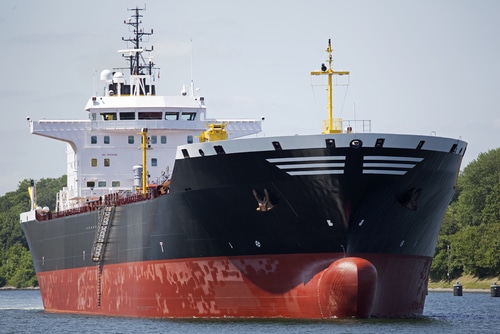While the battle against TransCanada’s Keystone XL pipeline rages on and oil-by-rail faces increased scrutiny, U.S. oil imports from Canada have quietly hit a record high of 2.99 million barrels per day.
That number — from the week ending Sept. 12, 2014 — marks a 20 per cent increase from a year earlier.
While rail is still handling only a small amount of crude oil compared to pipelines, it continues to rapidly expand.
In a May 19, 2014 meeting between the American Petroleum Institute (API) and the White House Office of Information and Regulatory Affairs (OIRA), API indicated the oil industry estimated it would need 12,000 rail cars to move Western Canadian crude, which is predominantly tar sands oil.
And in the second half of this year, it is becoming evident that the API’s prediction was a pretty good one. Rail is going to play an increased role alongside pipelines in getting tar sands oil to market despite opposition from activists across North America.
Case in point: this week the Minerva Gloria became the first tanker loaded with diluted bitumen (aka tar sands oil) on the St. Lawrence River in Sorel-Tracy, Quebec. The diluted bitumen arrived in Sorel-Tracy by rail, transported by Suncor, Canada’s largest oil producer.
One reason that tankers are now an economically viable method of moving tar sands oil is that the Canadian government changed the regulations in late 2013 to allow for larger tankers on the St. Lawrence. The oil shipments have been opposed by local residents, in large part because the St. Lawrence provides drinking water for three million people.
A Suncor spokesman declined to tell Reuters where the oil was headed, citing “commercial confidentiality,” but DeSmogBlog found shipping records that show the Minerva Gloria is set to arrive at Sarroch, Italy, home of the Saras refinery.
The activity on the St. Lawrence wasn’t the only new development in exporting Canadian oil this week. Buckeye Partners, LP, a fast-growing company that relies heavily on rail to transport oil, reportedly received its first unit trains of Canadian tar sands oil at its Perth Amboy, NJ, facility. Buckeye is expected to export the oil to their Bahama storage facility (BORCO).
In May, Khalid Muslih, Buckeye’s president of international pipelines and terminals, explained his company’s plans for exporting Canadian crude using rail to a Platts reporter:
“We’ve obviously been doing some work around this, and feel like there is an attractive opportunity to bring Canadian crude through our crude-by-rail facilities, onto the water, down to BORCO and then again to other global refining centers.”
Buckeye also closed an $860 million deal to purchase a crude oil and condensate terminal in Corpus Christi, Texas, this past week, further positioning itself for exports.
And more companies are flocking to oil-by-rail. The recently approved Alon project in Bakersfield, Calif., reportedly includes equipment to “offload undiluted Canadian bitumen.”
Global Partners, currently a major player in moving Bakken crude by rail is in a battle in Albany, N.Y., to get approval to install the heating equipment required to offload tar sands oil at its existing crude-by-rail facility. If successful, the tar sands oil would be transferred from the rail cars to barges sent down the Hudson River.
With the recent news that the cost to build the TransCanada Keystone XL pipeline may double to $10 billion, it isn’t surprising that TransCanada also is considering building oil-by-rail facilities. As pointed out in a Wall Street Journal article this week, the $50 million cost to build an oil-by-rail facility is equivalent to the cost to build one mile of the proposed Keystone XL pipeline.
Oil-by-rail proposals have also surfaced north of the border. The Motley Fool investment group recently noted that CN Rail “is floating the idea of running oil-by-rail services from Alberta oil fields to Prince Rupert, B.C. At a rate of up to seven trains per day, this would match the capacity of the proposed Northern Gateway pipeline.”
These numbers are expected to rise with the recently opened unit train loading facility in Hardisty, Alberta, as well as the Canexus unit train loading facility in Bruderheim, Alberta, coming back on line in September.
Indeed, the trajectory of rail options for tar sands appears to mirror what happened in the Bakken oil fields, which ramped up production in 2006 with little infrastructure available to transport the oil. As the Wall Street Journal reported this week, in 2006 North Dakota stated they were facing “a crude oil transportation crisis.” This crisis was resolved by re-inventing the crude-by-rail industry in America.
Canada currently has the third largest proven oil reserves in the world, trailing only Venezuela and Saudi Arabia. Ninety-eight percent of Canada’s current oil reserves is tar sands. The recently released U.S. Energy Information Administration report International Energy Outlook 2014 predicts Canada’s oil production will grow by three million barrels per day from 2010 to 2040 with much of the growth resulting from “a strong increase in bitumen production from Alberta’s oil sands.”
Much like the Bakken region faced a crude oil transportation crisis in 2006, Alberta faces a similar challenge in 2014. And it appears that just as Bakken producers turned to rail and waterway options, now the tar sands producers are doing the same.
Subscribe to our newsletter
Stay up to date with DeSmog news and alerts






